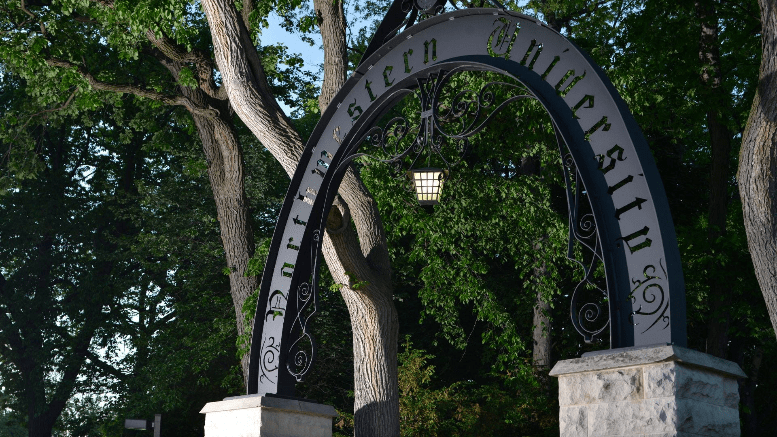Alumni Spotlight Q&A: Gabby Plotkin ’21
April 11, 2024

Meet Gabby Plotkin, who graduated from Northwestern University in 2021. Plotkin received a major from the Department of History with a certificate in civic engagement, and a minor from the Environmental Policy and Culture (EPC) Program.
What inspired you to pursue study in the Environmental Policy and Culture (EPC) Program?
Growing up in Colorado, I was exposed to the beauty and challenges of the natural world. Entire swashes of forests were dying and burning up in wildfires due to a tiny bark beetle. The frosts came later and later each year. When I got to college, I wanted to learn about the science behind climate change and how I could make a difference. The EPC program provided me with the language of how to talk and write about global warming. In my first EPC course, Sociology of the Environment, my ideas were turned on their head as I discovered how humanity’s relationship to the land was constructed. After that class, I declared my EPC minor.

Gabby Plotkin
How did your studies in the EPC Program impact you personally and/or professionally?
My studies in EPC laid the groundwork for my personal involvement in the environmental movement and my professional work in environmental justice. During my senior year, I completed an undergraduate honors thesis on the history of the Jewish American environmental movement with the help of my EPC and history advisor, Professor Keith Woodhouse. Collecting oral histories from movement elders introduced me to the ecological elements of Judaism. This experience allowed me to connect the threads of my personal and academic interests, so when I graduated from NU, I started a local chapter of “Dayenu,” to mobilize the young Jewish community. In addition, I work at the U.S. Environmental Protection Agency as an Environmental Protection Specialist. I oversee grant administration, select grantees for funding, engage with overburdened (by pollutants and climate change) communities, and design regulatory policies to address contaminants. EPC provided me with a foundational understanding of climate science and environmental justice as well as critical reading, writing, and research skills to serve me in my position.
What are you working on right now that excites you the most, OR are there any accomplishments you would like to share?
This past year, I helped create a new program at EPA to send out $3 billion for climate resiliency and pollution reduction measures for disadvantaged communities nationwide. These grants will allow communities to update water infrastructure, remediate chemical pollutants in homes, educate farmworkers about pesticides, compensate community organizers for robust community engagement around climate justice, uplift nature-based solutions for disaster resiliency, and so much more. These grants are called the “Community Change Grants,” and I helped to write a 90 page Notice of Funding Opportunity to create the framework and requirements for applicants. This funding is the heart of President Biden’s climate justice agenda, the Inflation Reduction Act. It is the largest pool of money the federal government has ever had for environmental justice. For this program, we are trying a lot of new ideas for the first time, including easing the burden of applying for federal grants, doing chemical cleanups on Tribal lands in Alaska, and putting aside funding for Unincorporated Communities (also known as “Colonias”).
What fun fact do you want to share with the Northwestern community?
My two closest friends from Northwestern and I all live in different states, but we make an effort every year since college to travel together. My favorite trip thus far was hiking the Inca Trail from Cuzco to Machu Picchu in Peru. It was a four day hiking and camping adventure, culminating in 26 miles and the highest elevation point was almost 14,000 feet! We passed through six different microclimates on our trek.
How do you enjoy spending your free time?
In my free time I love to hike, bike, and ski. I’m also in multiple bookclubs.
Science & Technology

Northwestern accelerates quantum research with NVIDIA technology
September 19, 2025
NVIDIA code could help researchers tackle computationally demanding tasks hindering quantum research Northwestern University physicists are using NVIDIA technology to tackle the computationally demanding tasks hindering quantum research. Northwestern theoretical physicist Jens Koch and his research group…

CRISPR’s efficiency triples with DNA-wrapped nanoparticles
September 18, 2025
New system delivers CRISPR machinery more safely and effectively into cells With the power to rewrite the genetic code underlying countless diseases, CRISPR holds immense promise to revolutionize medicine. But until scientists can deliver its…

Passion for the planet: A new generation of environmental stewards starts here
May 29, 2025
Over the last two decades, the Weinberg College-housed Program in Environmental Policy and Culture (EPC) at Northwestern has embraced the humanities and social sciences and cultivated a new generation of environmental stewards. Growing up in…

Northwestern receives $25 million gift to advance adolescent mental health research
May 16, 2025
New institute will study psychology of emerging adults, leading to innovative wellness programming for students at the University and beyond Northwestern University is launching the Institute for Adolescent Mental Health and Well-Being, an interdisciplinary initiative…



